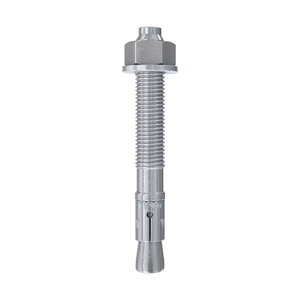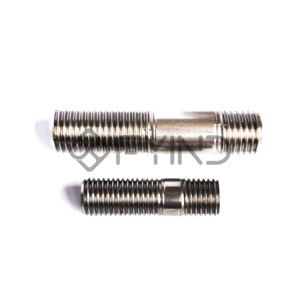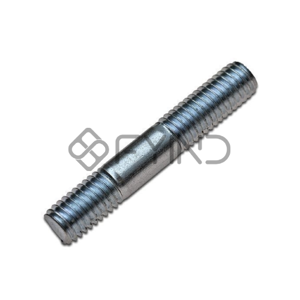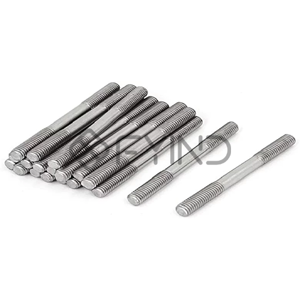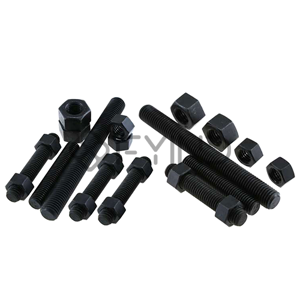Stud bolts are an important part of flanged joints because they are the key to a good seal. A stud bolt comprises one threaded steel rod and two heavy square steel bolts that match each other. Stud bolts come in different sizes, lengths, and materials, including carbon steel, alloy, stainless steel, and nickel alloys.
Common types include ASTM A193 B7, L7, B8, B8M, B16, Alloy 20, Monel, Hastelloy, Inconel, 17-4PH, titanium, etc. The material of the hex steel bolts should match the material of the threaded rod (in general, stud materials ASTM A193 should match bolt materials ASTM A194).
Different types and sizes of flanges need different sizes of screw bolts. The length of an ANSI stud bolt is the distance from the middle of the bolt to the middle of the bolt. This is a fastener's "grip length"; this is where most of the bolt load will be, no matter how big the bolts are. Usually, shorter bolt lengths are less secure than larger ones.
The general rule for a good stud length is a 5:1 ratio between the length of the stud and its diameter. This means that the length of the stud bolt is five times bigger than its diameter.
The yield strength of ASTM A193 B7 stud bolts with a width of 2.5 inches or less is 105,000 PSI. 95,000 PSI is a smaller yield strength for grade B7 bolts with stud diameters between 2-5/8" and 4". Stud bolts that are 4′′ to 7′′ long have a yield strength of only 75,000 PSI.
Most Grade B7 bolt bolts are made from ASTM A194 heavy hex bolts (2H). A194 Grade 2H Bolts The 2H bolt is stronger than the stud bolt and is used with B7 Studs. So, you should see the pin break before the bolt break.
In short, stud bolts are an important part of flanged joints because they help seal them properly. Stud bolts come in various sizes, lengths, and materials, including carbon steel, alloy, stainless steel, and nickel metals. They can be measured in both metric and imperial units.
Different types and sizes of flanges need different sizes of screw bolts. A good rule of thumb for stud length is that the length of the stud should be 5 times its width. Most Grade B7 bolt bolts are made of ASTM A194 heavy hex bolts (2H bolts).
1. What's a stud bolt?
Ans: A stud bolt is a threaded fastener with threads on both ends that connects two flanges.
2. Which stud bolts are available?
Ans: Stud bolts can be completely threaded, tap end, or double end.
3. Stud bolts are composed of what?
Ans: Carbon steel, alloy steel, and stainless steel are used to make stud bolts.
4. How are stud bolts different from normal bolts?
Ans: Stud bolts have threads on both ends, unlike normal bolts. Stud bolts are used when a bolt has to be tightened on both ends.
Popular Categories
Popular Categories

